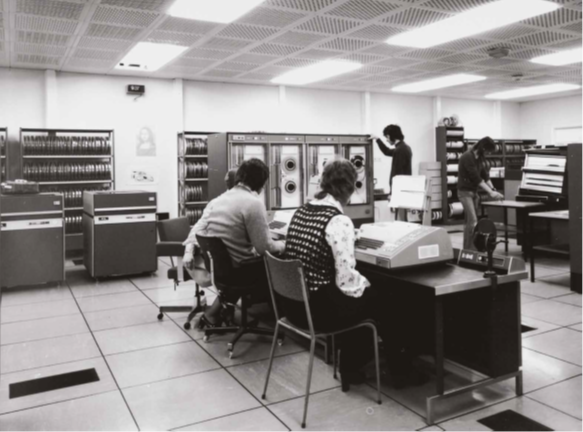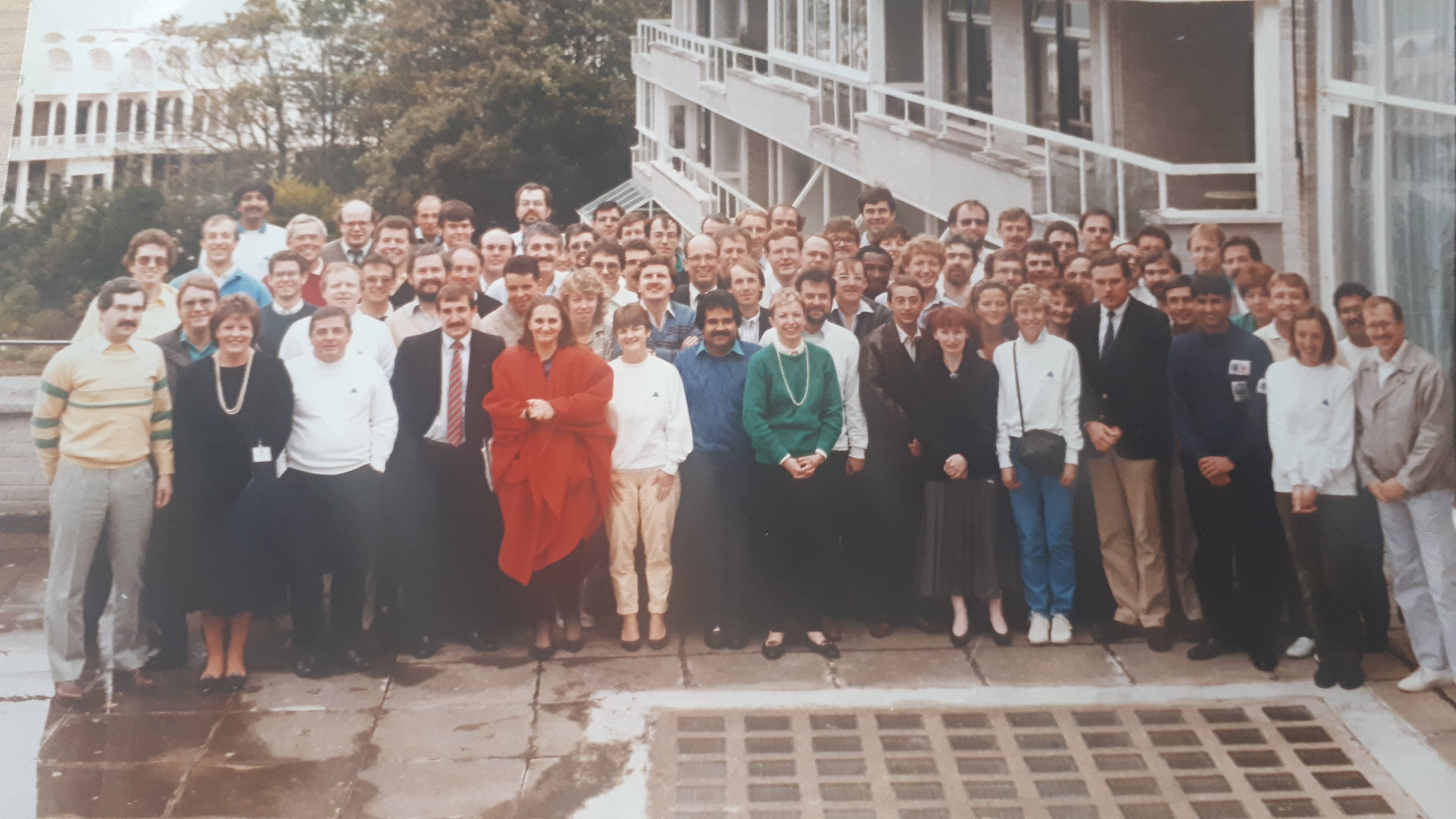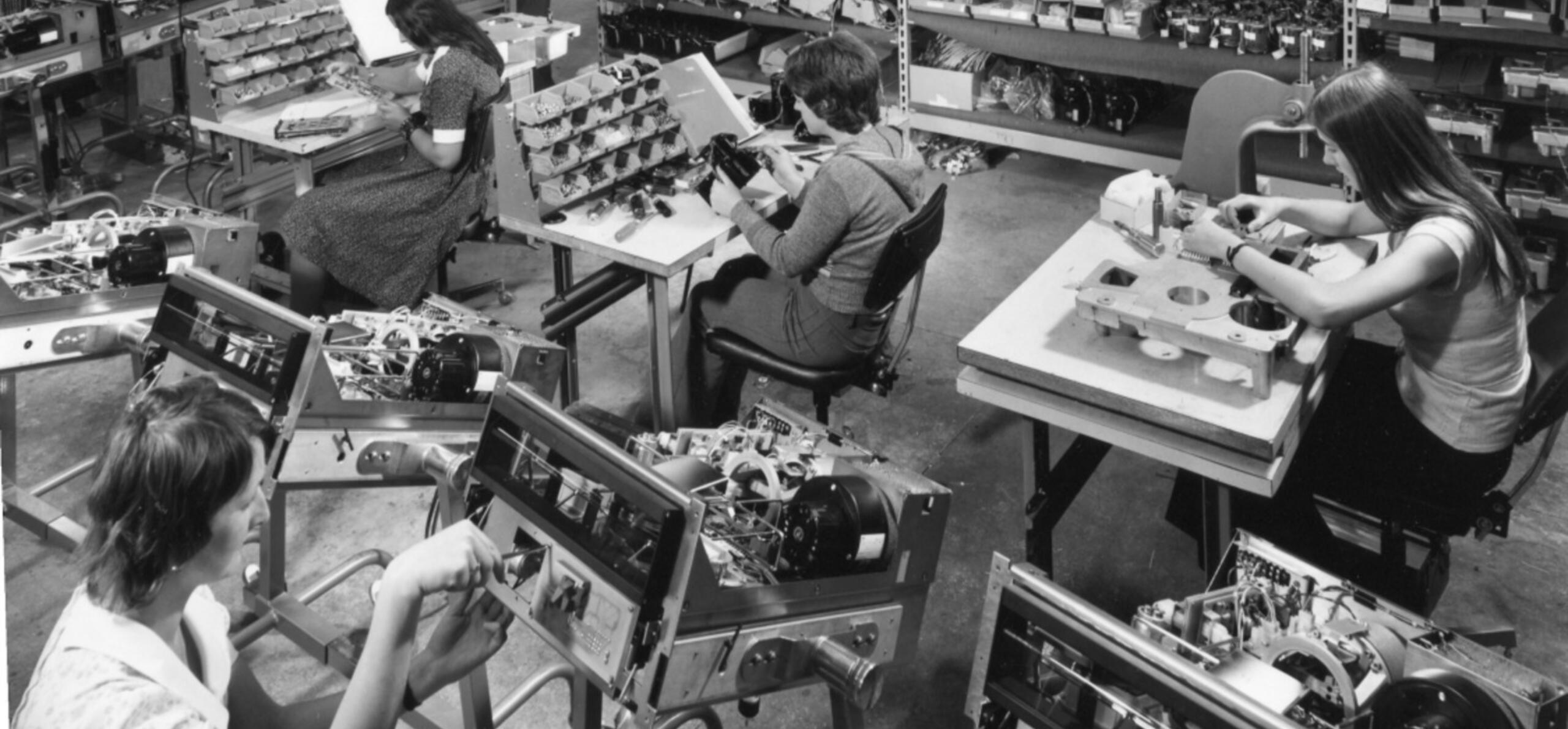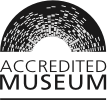DEC was a rejection of huge, expensive computers and the big and bureaucratic American manufacturing culture responsible for them. Engineers Ken Olsen and Harlan Anderson founded DEC in 1957 but it was Olsen whose personal beliefs shaped a corporate culture that became known as ‘the DEC way’.
What was 'the DEC way'?
The DEC way was rooted in an entrepreneurial spirit that fostered experimentation and allowed mistakes. It encouraged staff to take the initiative and responsibility.
An important component of the DEC way was a concept known as ‘do the right thing’ that was applied to DEC employees and customers. For employees, the principle was founded on the idea that everyone should be allowed to realise their potential – that nobody should be left behind. It was a mix of paternalism straight from Olsen mixed with real-world necessity: for DEC to grow and advance, it was important to hire the best and promote talent from within. That paternalism showed time and again as DEC management refused to follow other employers in laying off staff during economic downturns.

Smaller, smarter, and easier to use: DEC’s minicomputers marked a turning point in computing history. This 1973 photo shows a University of Reading team operating an ICL 1904S minicomputer in a specially equipped room.
Investing in People: DEC’s Secret Weapon
DEC’s first layoffs came late in its life, in the 1990s when the business struggled against nimble PC rivals and just before it was bought by Compaq Computer in 1998. Before this, and guided by the DEC way, Reading management ran new and innovative programmes to develop, advance and reward individuals.
Training and education was a huge part of the DEC way. Staff were encouraged to develop within their roles and scale the management ladder through classes that were offered at Reading and the company’s US and French offices. The quality of DEC’s training was considered second to none in the industry and in the early days a DEC field engineer could spend weeks or months in a DEC classroom before coming face-to-face with a customer.
Beyond Sales: Building Trust: The Human side of tech
Workplace mobility was also fostered. Going against their own interests, managers encouraged team members to apply for positions across the company. Staff were encouraged to change every few years - to take on new responsibility and grow.
The way DEC sold technology was also shaped by doing the right thing. That meant cultivating a close relationship with customers and putting them first – treating them as a friend or partner not simply a sales target. For a long time, sales staff received no commission and the company was known to continue providing sales support even in situations where customers could not pay. DEC sales teams were expected to develop an understanding of customers’ needs and propose the DEC technology that could solve a problem or advance their systems. This was not a relationship founded on the hard sell or quotas and in a test of that, staff reviews included room for customer feedback.

DEC staff photo
DEC’s Gold Standard in Support
Support was an important part of the relationship, too. DEC field engineers, largely trained in Reading, would be expected to travel across the country to fix any problem at short notice, day or night. This was a time when computer skills were in relatively short supply, so customers depended on the expertise of DEC’s engineers.
As DEC computers grew in power and the software more complex, DEC recognised the job of field-service engineer was becoming harder to fill. In response, it built a 400-person customer support centre for the UK in Basingstoke. Basingstoke delivered advanced remote diagnostics for hardware and software and boasted a 15-minute response time. All that - and more - at no extra charge to the customer.
Do the right thing and the DEC way built up a strong and loyal customer base. For employees, the effects of doing the right thing were immediate and long lasting, breeding an intense sense of loyalty to DEC that continues to this day.
Everyone was very accessible, no-one was in a locked office that you couldn’t go to and ask questions… you could talk to the engineers, you could bring them into your meetings, you could get your ideas embedded in the next generation of engineering plans.
- David Probert
Return to the Reading's Digital Revolution homepage or explore the next section: Working for the 'Google' of its day - if you were lucky





